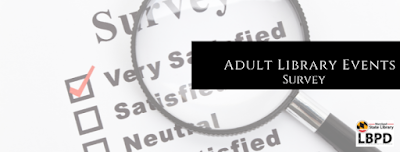Collection Highlights: Foreign Language Materials
Contributed by Jordan Farinelli, Collection Development Librarian

November 2021
With Thanksgiving just weeks away, check out some of our holiday titles, available for all ages!
Grades P-2
DB 61432 – Thanksgiving Day, by Anne F. Rockwell
After their teacher, Mrs. Madoff, reads a story about the first Thanksgiving,
the class acts out the story in a play.
DB 101004 – How to Catch a Turkey : How to Catch, Book 7, by Adam Wallace
Chaos ensues as students turn their school upside down trying to
catch the turkey that is running loose in the halls right before their Thanksgiving play.
Grades K-3
BR 18965 – Fluffy's Thanksgiving : Fluffy, the Classroom Guinea Pig, by Kate McMullan
After starring as an ear of corn in his school's Thanksgiving play,
the classroom guinea pig enjoys his holiday at Maxwell's home, where he scares
Grammy and battles a monster.
DB 75815 – Balloons over Broadway : The True Story of the Puppeteer of Macy's Parade, by Melissa Sweet
Recounts the history of the giant helium-filled character balloons that float
every year since 1928 in the Macy's Thanksgiving Day Parade in New York City.
Discusses Tony Sarg's love for puppets, which set the stage for his creations.
DBC 06028 – Thank you, Sarah : The Woman Who Saved Thanksgiving, by Laurie Halse Anderson
Relates how Sarah Hale, a magazine editor and author, persuaded President
Lincoln to transform Thanksgiving Day into a national holiday.
Grades 2-4
BR 13495 ; DB 21685 – Molly's Pilgrim, by Barbara Cohen
Molly is an immigrant Jewish girl from Russia. Molly's mother helps her make a Pilgrim doll for a Thanksgiving school assignment, but dresses it as she dressed in Russia before fleeing religious persecution. Molly is at first embarrassed about the doll, but learns there are many kinds of pilgrims.
DB 61393 – Lenny and Mel, by Erik Kraft
Twin brothers Lenny and Mel celebrate holidays in some unusual ways.
After eating Thanksgiving turkey for a week, the boys put the remains under
Mel's pillow for the Leftover Fairy to exchange for money.
DB 77710 – The Turkeys' Side of It : Adam Joshua's Thanksgiving : Adam Joshua Capers,
Book 7, by Janice Lee Smith
Disappointed at being cast as a turkey in the school Thanksgiving play with his friend Nelson,
Adam Joshua and the rest of the kids cast as food figure out a way to make the best of it.
Grades 3-6
DB 09773 – An Old-Fashioned Thanksgiving, by Louisa May Alcott
A warm Thanksgiving tale with a surprise ending. The seven Bassett children decide to prepare
Thanksgiving dinner themselves after their parents leave suddenly to care for an ailing grandmother.
Includes recipes from the dinner.
DB 34496 – Wild Turkey, Tame Turkey, by Dorothy Hinshaw Patent
The turkey that has become a symbol of Thanksgiving is a big, dumb creature, but only as a result of domestication. The wild turkey is an intelligent, cunning, powerful bird whom Benjamin Franklin preferred over the bald eagle as a symbol of our nation. The author examines the history of the native North American turkey and compares it with its domesticated cousin. She also discusses the welfare of both populations.
Adult
BR 18840 ; DB 70312 – A Quilter's Holiday : Elm Creek Quilts, Book 15, by Jennifer Chiaverini
The quilters of Elm Creek begin a Thanksgiving project to represent appreciation and
gratitude for all of life's blessings. Meanwhile, Sarah waits for the birth of her twins,
newcomer Anna hopes her friendship with Jeremy evolves, and a blizzard blankets the area.
BR 20557 ; DB 66731 – Still Life : Chief Inspector Gamache, Book 1, by Louise Penny
Shortly after elderly Jane Neal finally agrees to participate in the art show to
be held in her small village outside of Montreal, she is killed by an arrow through the heart.
As Chief Inspector Gamache investigates, he wonders if her unusual artwork provides a clue
to her murder.
DB 63690 – Thanksgiving, by Janet Evanovich
Williamsburg, Virginia. A chance encounter with a wayward pet rabbit introduces
potter Megan Murphy to the animal's owner, pediatrician Patrick Hunter. Megan and
Patrick become unlikely guardians of an abandoned infant, and as Thanksgiving approaches,
the pair contemplates making their makeshift family legitimate.






